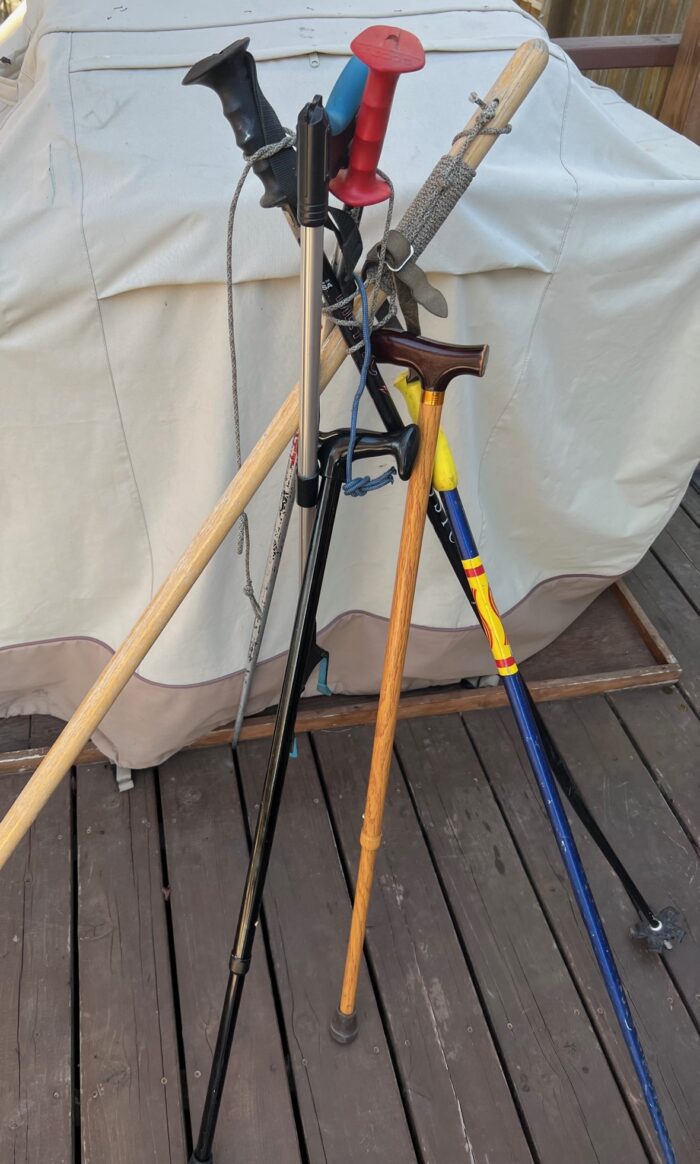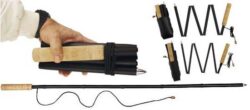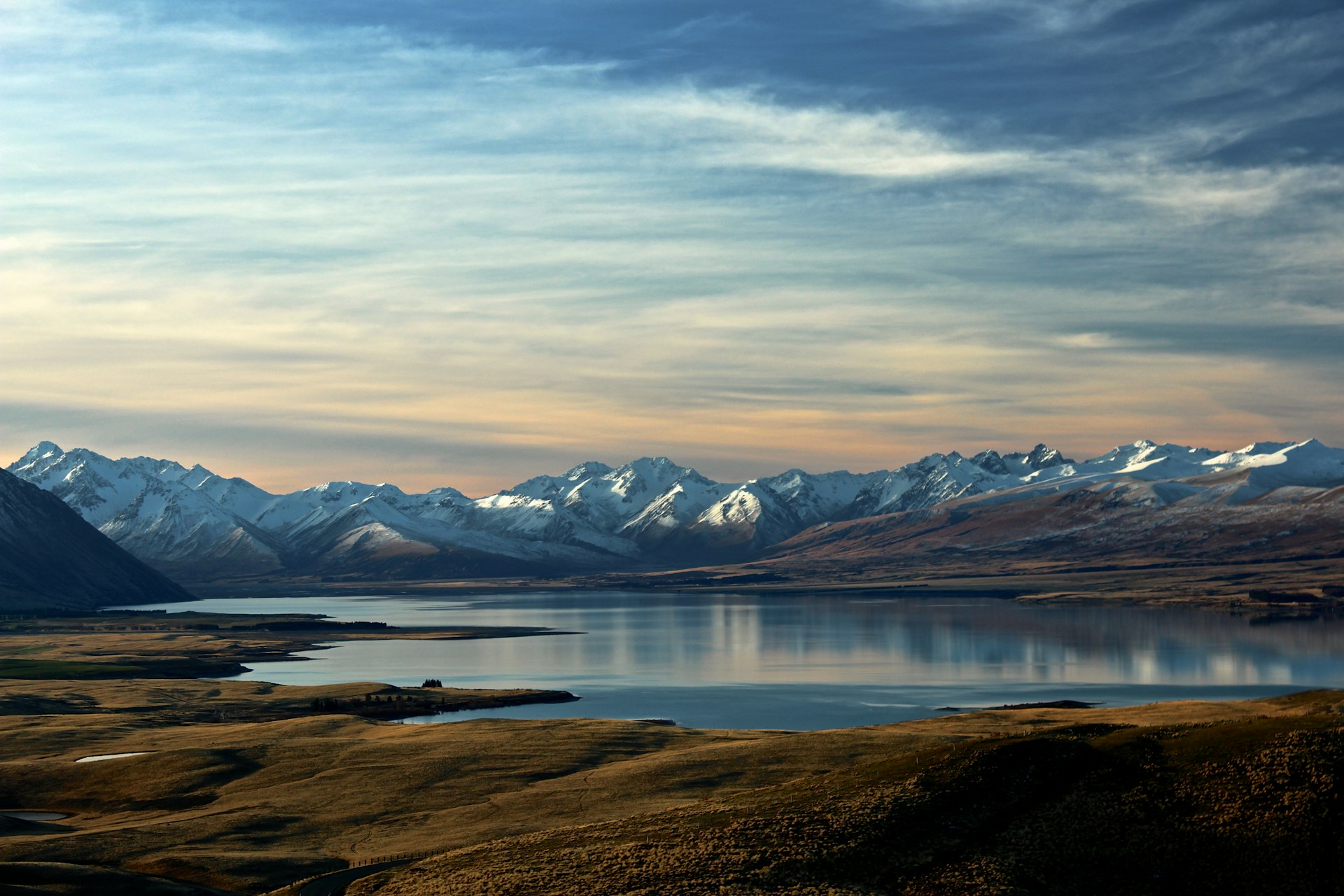 Hikers and fishermen know exactly what I am talking about. Whether you call it a cane, walking stick, hiking pole, wading staff, or ski pole, you need a third leg for support and safety. Boaters, kayakers, and canoeists also understand having 3 points of contact when getting into or out of their watercraft.
Hikers and fishermen know exactly what I am talking about. Whether you call it a cane, walking stick, hiking pole, wading staff, or ski pole, you need a third leg for support and safety. Boaters, kayakers, and canoeists also understand having 3 points of contact when getting into or out of their watercraft.
No one wants to fall. A slip and tumble can cause you to become injured or worse. The support from a third leg can make the difference between staying upright or flopping into the water or ground.
You don’t feel like you need a third leg when you are young. As a young man, I was a tank in the rivers, fields, and trails. Rarely did I fall. When I put on wading boots with felt, cleats, or metal studs, my action traction got even better.
Getting old or recovering from an injury will happen at some point. That is when you need to consider some type of sturdy third leg adaptation.
There are plenty of legs to consider. A length of branch will do in a pinch. Rivers that I frequently fished may require a few crossings at the same point. I would cut a good stick and leave it at the crossing for the next trip.

Collapsible wading staffs are easy to carry on your belt and are out of the way until you need it. When wading a strong current, you are usually fine until you need to turn around to head back to shore. That’s when you need a third leg. Simply draw the collapsible staff, plant it on the bottom of the river, and make the turn safely.
The rivers in Montana have no flat rocks. All the rocks are from the ice age. This means that they have been tumbled into slick, bowling balls. Cleats on your boots and a third leg will be handy. I have found that an old ski pole is perfect. A neighbor threw some in the trash and I scarfed them up. I carry a few in the truck for day hikes and fishing trips.
If you have a full-sized wading staff, tie a rope to it so you can release it when in the water. It will float by your side until needed.
Wading/hiking staffs are also handy for other uses. I have moved snakes off the trail, wrote messages on the beach, used the staff to get unsnagged in the water, pulled down branches where I hooked a fly or lure, for removal, and used the staff to hold back cattle and other critters. In a pinch, they can help to hold up a tarp in the rain. The grabber helps pick up trash or stuff that falls. Great in a boat. One buddy used his ski pole to fend off a mountain lion!
If you are wading staff less, you can also use your net. Simply place the net into the river. The water resistance will give some support to navigate. If rocks or logs are around you, the net can brace against them until you have your balance.
The last best solution is to interlock arms with a friend. You can give each other support and security if your feet are touching the bottom.
Stay steady and ready!
Montana Grant




